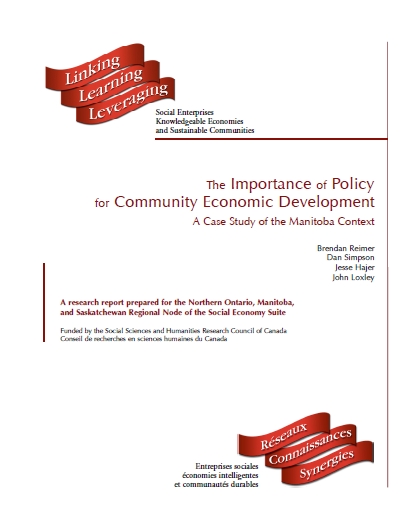A research report prepared for the Northern Ontario, Manitoba, and Saskatchewan Regional Node of the Social Economy Suite
Most CED pratitioners are primarily interested in action and projects, and the connection between policy and CED activity is not always very obvious and often not well understood. Supportive policy can play a crucial role in the success or failure of CED initiatives. For example, because CED enterprises are often in competition with private sector businesses without goals beyond profit maximization, polices that give preferential treatment to supporting their viability may be necessary to account for the valuable social and environmental contributions of social enterprise. Also, because a CED approach takes into account broader social and environmental impacts that benefit whole communities, a CED approach requires promotion at the regulatory level to recognize the fact that a CED approach generates benefits for the larger community and may not be accounted for by organizations with narrower mandates. For an example from a different field of work in CED, policies surrounding training eligibility for persons on Employment Insurance can hinder or support a CED approach to employment development.
This paper analyses how public policy, specifically government policy, affects the success and possibilities for CED to take place, using the province of Manitoba as a case study. Section two reviews what policy is and why it is important. Section three offers a review of existing policies at the provincial level that support CED. Section four reviews policy priorities of the CED movement in Manitoba. Section five offers a review of the policy-making apparatus of the current Manitoba government and suggestions on how to advance CED policy interests at this level. Section six offers some concluding remarks and explores the lessons to be learned from this examination of the Manitoba context for CED practitioners across Canada.





